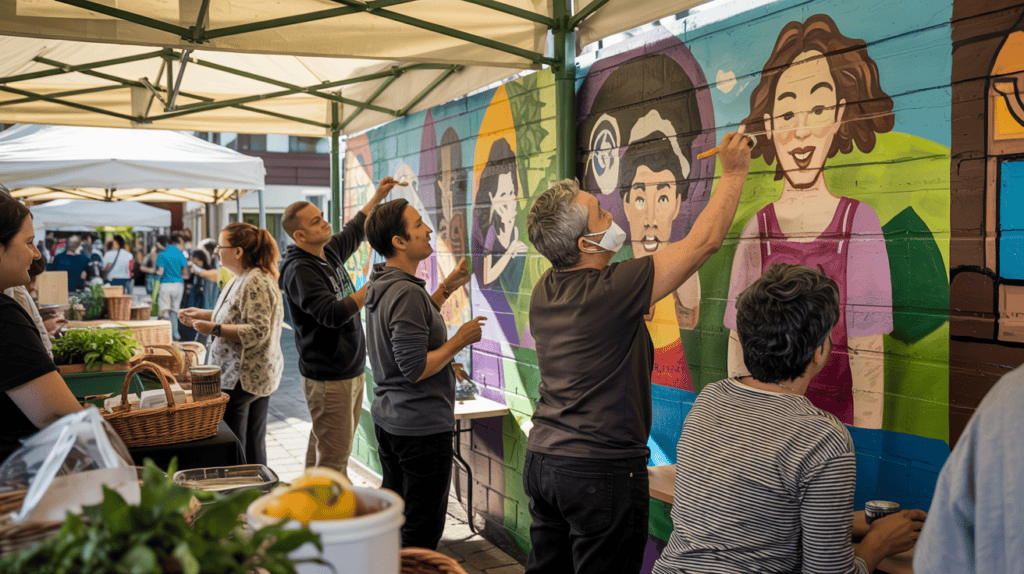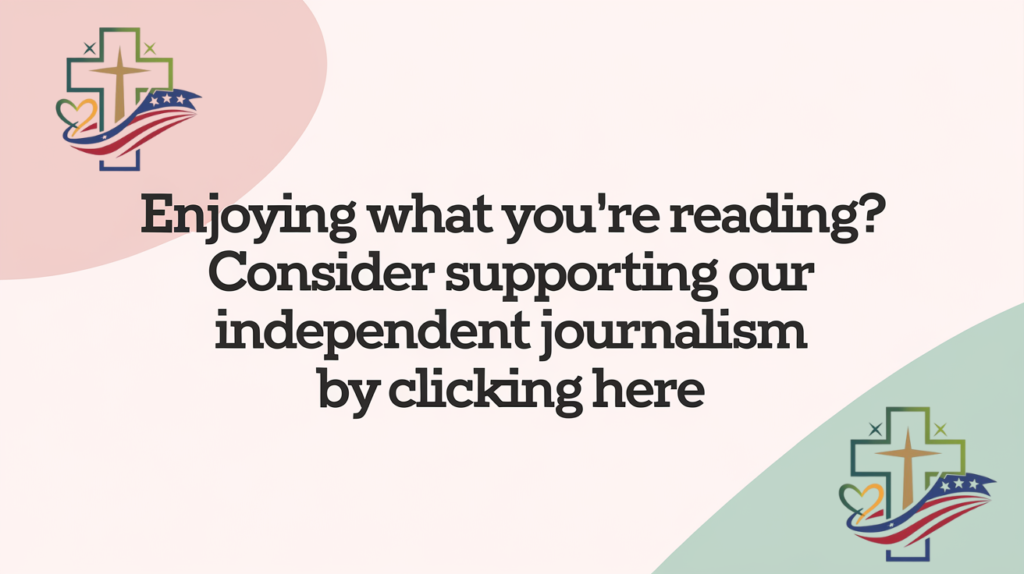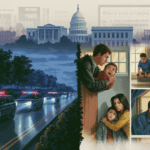Would Jesus take a stroll through a bustling marketplace, rich with the scent of fresh bread and the sound of haggling voices, to tackle the modern giants of inflation and living costs? Picture His gentle smile as He reminds everyone of the value of kindness and community—the very values He championed centuries ago. In imagining such a scenario, His teachings inspire a deeper reflection on our approach to economic challenges today.
Boldly, consider the notion that Jesus’ philosophy of sharing resources could revolutionize our financial systems. His teachings emphasize compassion and generosity, avenues through which even economic policies might find a guiding light. By putting His principles into practice, society could potentially progress toward a more equitable distribution of wealth and resources, fostering an environment where everyone’s basic needs are met.
Imagine communities banding together, inspired by the Good Samaritan, to support those struggling with high costs. These modern-day Samaritan efforts could take form in community kitchens or local cooperatives, drawing neighbors closer and reducing financial burdens. Could such faith-driven actions provide a beacon of hope in addressing today’s economic dilemmas?

Divine Economics
Consider the fascinating prospect of Jesus’ teachings guiding modern economic policies. Faith, community, and compassion could become vital components in addressing inflation and the escalating cost of living. Through divine insights, the financial burdens of today might find new solutions.
The Sermon on the Economic Mount
Imagine an economic summit guided by lessons from the Sermon on the Mount. Jesus’ teachings often advocated for generosity and empathy. Picture policymakers adopting these principles, focusing on reducing economic disparities. With a spotlight on equity, policies could encourage wealth distribution, benefiting those struggling to make ends meet.
Envision tax incentives for charitable giving, fostering a culture where abundance supports need. Picture programs that grant access to essential services, invoking the ancient call to share resources with those in need. By valuing community support over individual gain, economies could discover paths to balance and equity.
A Modern Multiplication
Remember the story of the loaves and fishes? In today’s context, it serves as a metaphor for utilizing resources wisely to address scarcity. Modern equivalents could involve innovative solutions for maximizing efficiency and sustainability. Consider collaborative initiatives that enhance agricultural productivity or reduce waste.
How about urban gardens that turn vacant lots into fertile grounds? Or perhaps technology that helps communities share and redistribute excess food? Seeking inspiration from this miracle urges economies to rethink and reshape practices, aiming for abundance and reduced costs. Ultimately, harnessing creativity in policy design fosters an environment where all can thrive, echoing the miraculous provision of ancient times.
Financial Miracles
The concept of financial miracles might seem outlandish in today’s world, yet parallels can be drawn between biblical tales and modern solutions. By exploring age-old narratives and their relevance to contemporary economics, we uncover hopeful paths to healing the financial strain most feel.
Feeding the Multitudes Today
Picture standing in a bustling marketplace. Stalls are laden with colorful fruits and busy vendors shout out their specials. The spirit of abundance isn’t just visual—it’s about a belief in plenty for all. How can this be mirrored now? Consider community-supported agriculture (CSA) as a real-life counterpart, where fresh, local produce is shared among subscribers. This approach fosters a deep connection between consumers and farmers, helping ensure that nutritious food isn’t just a privilege but a rightful staple for everyone. By prioritizing localized food systems, communities can reduce waste, embrace sustainability, and make healthy meals accessible even in economically strained times.
Economic Loaves and Fishes
Reflecting on the story of loaves and fishes, imagine small acts that birth grand change. In today’s world, microfinance offers a similar ripple effect, empowering those often overlooked by traditional banking sectors. Small loans and entrepreneurial support become tools of transformation, enabling individuals to start small businesses, provide for their families, and, step by step, uplift their communities. These financial frameworks, though initiated on a micro scale, can lead to meaningful shifts in economic landscapes, much like the biblical fish and loaves fed multitudes. The emphasis lies in harnessing human potential and nurturing it until it flourishes, making faint dreams bloom into reality.

Compassionate Policies
Imagine if economic strategies reflected the empathy and care of a close-knit community. Policies inspired by Jesus’ teachings focus on nurturing the well-being of all individuals, promoting welfare systems that echo compassion and collective responsibility.
The Good Samaritan’s Welfare
The story of the Good Samaritan isn’t just a tale of kindness; it’s a blueprint for social welfare. By advocating for policies that prioritize healthcare and emergency assistance, communities focus on uplifting those who might otherwise be left behind. Picture a system where no one falls through the cracks, where support extends a hand in moments of crisis.
This approach emphasizes immediate action coupled with sustainable planning. It’s about more than just money— it’s about providing shelter, healthcare, and nutrition to those in need. Such policies could fundamentally reshape community priorities, fostering an environment of care rather than indifference.
Community-Led Support
Community-led initiatives drive change at the grassroots level. By harnessing the power of local organizations, neighborhoods become spaces of support and resilience. Imagine local food banks that don’t just provide meals but also create opportunities for communal cooking and shared experiences. These actions nurture a sense of belonging and empowerment.
Furthermore, educational programs and skills workshops offer the promise of a brighter future. With neighbors pooling resources and expertise, individuals build the capabilities needed to navigate economic challenges. This collective empowerment moves beyond charity, evolving into a dynamic force for nurturing lifelong security and prosperity.

Generosity in Action
In an economic landscape marred by soaring prices and uncertainty, the spirit of generosity stands as a powerful antidote. Offering a fresh perspective, acts of kindness and selflessness may stimulate more equitable distribution and peace.
Sharing Wealth
Imagine a world where the rich don’t just amass wealth but actively engage in sharing it. Philanthropic initiatives, driven by genuine compassion, have the potential to narrow the wealth gap. The joy of giving extends beyond numbers.
The ripple effect of shared assets can lead to strengthened communities and increased opportunities for all. By fostering a culture where wealth isn’t hoarded but flows freely, society cultivates an environment where everyone’s basic needs are met, and prosperity doesn’t remain a distant dream.
Stewardship and Sustainability
What if the solution to economic turmoil lay in the Earth beneath our feet? By addressing stewardship and sustainability, we find a path where caring for both creation and community promises lasting change.
Caring for Creation
Imagine standing in a lush field, the sun warming your skin, as you consider how best to care for this planet. Jesus’ message on stewardship emphasizes the interconnectedness of all life, urging respect and responsibility. It’s more than just about planting trees or conserving resources. It’s about nurturing a mindset where every action considers the environmental ripple effects.
Communities thrive when they cherish their surroundings and actively participate in preserving them. Simple actions, like reducing waste and supporting clean energy, not only preserve beauty but also offer economic benefits. A healthy world contributes to a robust economy, where resources are abundant and available for everyone.
Environmental Ethics and Economy
Is there a way to turn ethics into economic action? Yes. These two seemingly disparate fields can merge harmoniously. Jesus’ teachings suggest a moral economy, where decisions are guided by a sense of responsibility towards the Earth and each other. By prioritizing ethical considerations, businesses can lead sustainable practices that are both financially viable and environmentally friendly.
Innovative practices, like developing sustainable products or investing in green technologies, are at the heart of this harmonious relationship. They promise not just survival but prosperity, as ethical economies adapt more resiliently to crises. The focus shifts from mere profit to holistic well-being, benefiting both people and the planet.

Ethical Economics
Could the economy thrive with a hint of morality, a sprinkle of compassion? Ethical economics steers the financial compass toward a fairer world, balancing profit-making with genuine human concern. By aligning business strategies with ethical standards, societies can pursue wealth alongside justice and community well-being.
Profit with a Purpose
Imagine a world where companies earn not just through sales but through service to society. Ethical businesses chase profits, sure, but these are profits with intentions beyond mere numbers—like lifting local communities or empowering disadvantaged groups. Instead of just piling up riches, these companies invest in education or create jobs in underserved areas.
Companies can channel a portion of their earnings back into the community, perhaps supporting schools or healthcare. This method doesn’t just benefit individuals but uplifts entire communities. The idea of profit with a purpose asks businesses to engage meaningfully with their environment and stakeholders. Isn’t that what every compassionate economy should strive for?
Fair Trade and Justice
Who would have thought your morning coffee could be a political act? Fair Trade means producers in developing countries get fair compensation, and not just scraps. It’s an antidote to exploitation and a promise of ethical transparency. No more shrugging off the plight of the farmer who grew your coffee beans.
Justice here isn’t just a legal term but an everyday reality. Fair Trade ensures that workers receive honest wages, which they can use to improve their quality of life. It highlights the respect and dignity that should permeate economic transactions. An ethically minded buyer supports sustainability and fairness through well-informed choices. Energizing, isn’t it?

Building the Beloved Community
Envision a community where fairness reigns and unity thrives. In this section, we’ll explore how embracing social equity and unifying divided societies can lead to a harmonious, prosperous future for everyone.
Social Equity
Social equity stands as a pillar in the beloved community, ensuring fair opportunities and resources for all. By upholding principles of fairness, addressing income disparities through policies, and creating access to essentials like healthcare and education, a more balanced society emerges. Imagine a world where wealth isn’t just hoarded but shared, lifting people out of poverty and enabling them to contribute meaningfully to their communities.
A commitment to fair wages plays a crucial role. Ensuring workers are compensated adequately respects their dignity and supports their families. This ripple effect can energize local economies, as people spend resources in their neighborhoods, fostering growth and reducing inequality. Incorporating diverse perspectives in decision-making processes also promotes fairness, ensuring that solutions reflect the needs and voices of everyone.
Unifying Divided Societies
Unity thrives when trust and understanding bridge divides. Societies splintered by conflict and mistrust find healing in dialogue and collaboration. Through initiatives that foster conversations among diverse groups, longstanding tensions ease, paving the way for cooperation.
Community-led programs that bring people together highlight shared values and foster empathy. These initiatives are vital in building resilience against divisiveness. Cultural exchanges, storytelling events, and shared community projects create bonds, making people see past their differences.
Education also plays a transformative role. By promoting history lessons that reflect a multitude of perspectives, societies can grow a generation aware of past mistakes and eager for harmony. This shared history fosters mutual respect, cultivating a culture of reconciliation essential for any thriving community.
Heavenly Prosperity
Imagine a bustling marketplace on a bright Sunday morning. The air is filled with the aroma of fresh bread and the laughter of children. What if the principles of ancient wisdom could steer economic policy here?
Consider a community where forgiveness erases debts as easily as chalk from a board. This scenario could turn scarcity into abundance, fostering a safety net that elevates all. Such prosperity isn’t measured in gold but in the richness of community bonds.
In this vision, generosity acts as a currency more powerful than any minted coin. Sharing what you have, no matter how little, could spark a chain reaction. Imagine making compassionate investments in neighbors and seeing returns in shared joy and comfort.
The idea of prosperity extends beyond the material. It is about nurturing a spirit of gratitude and interdependence. A simple smile or a kind gesture might become the most valuable commodity.
Economic policies could reflect these teachings, prioritizing welfare over wealth. What if success was measured by how well we meet others’ needs instead of our own desires?
Such a world would honor simple pleasures and cherish togetherness. Heaven on Earth might seem like a lofty goal, but maybe, with the right mindset, it’s closer than we think.








